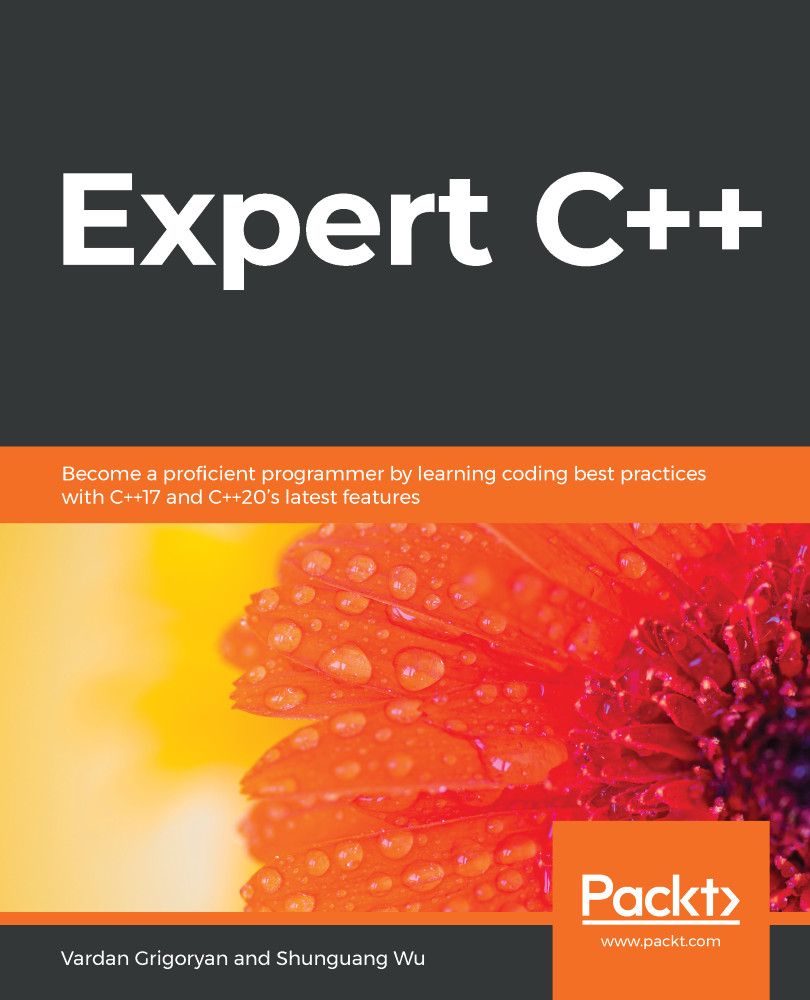Most of the time, issues arising during memory management happen when programmers forget about deallocating memory space. This results in memory leaks. A memory leak is a widespread issue in almost every program. When the program requests a new memory space for its data, the OS marks the provided space as busy. That is, no other instruction of the program or any other program can request that busy memory space. When the portion of the program is done with the memory space, ideally, it must notify the OS to remove the busy label to make the space available for others. Some languages provide automatic control over dynamically allocated memory, leaving the programmer to worry about the logic of the application rather than constantly being concerned with deallocating memory resources. However, C++ assumes that the programmer is responsible and smart...
-
Book Overview & Buying

-
Table Of Contents

Expert C++
By :

Expert C++
By:
Overview of this book
C++ has evolved over the years and the latest release – C++20 – is now available. Since C++11, C++ has been constantly enhancing the language feature set. With the new version, you’ll explore an array of features such as concepts, modules, ranges, and coroutines. This book will be your guide to learning the intricacies of the language, techniques, C++ tools, and the new features introduced in C++20, while also helping you apply these when building modern and resilient software.
You’ll start by exploring the latest features of C++, and then move on to advanced techniques such as multithreading, concurrency, debugging, monitoring, and high-performance programming. The book will delve into object-oriented programming principles and the C++ Standard Template Library, and even show you how to create custom templates. After this, you’ll learn about different approaches such as test-driven development (TDD), behavior-driven development (BDD), and domain-driven design (DDD), before taking a look at the coding best practices and design patterns essential for building professional-grade applications. Toward the end of the book, you will gain useful insights into the recent C++ advancements in AI and machine learning.
By the end of this C++ programming book, you’ll have gained expertise in real-world application development, including the process of designing complex software.
Table of Contents (22 chapters)
Preface
Section 1: Under the Hood of C++ Programming
 Free Chapter
Free Chapter
Introduction to Building C++ Applications
Low-Level Programming with C++
Details of Object-Oriented Programming
Understanding and Designing Templates
Memory Management and Smart Pointers
Section 2: Designing Robust and Efficient Applications
Digging into Data Structures and Algorithms in STL
Functional Programming
Concurrency and Multithreading
Designing Concurrent Data Structures
Designing World-Ready Applications
Designing a Strategy Game Using Design Patterns
Networking and Security
Debugging and Testing
Graphical User Interface with Qt
Section 3: C++ in the AI World
Using C++ in Machine Learning Tasks
Implementing a Dialog-Based Search Engine
Assessments
Other Books You May Enjoy
